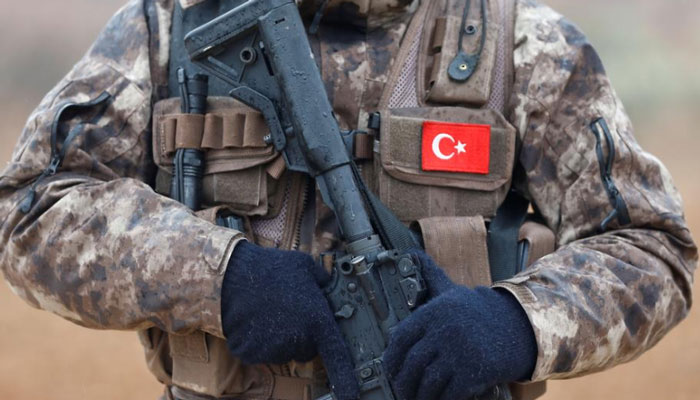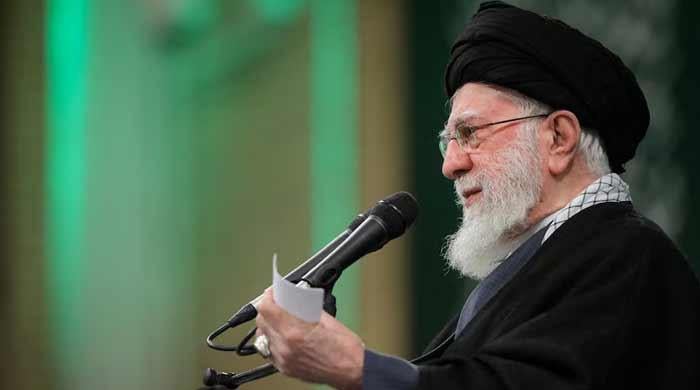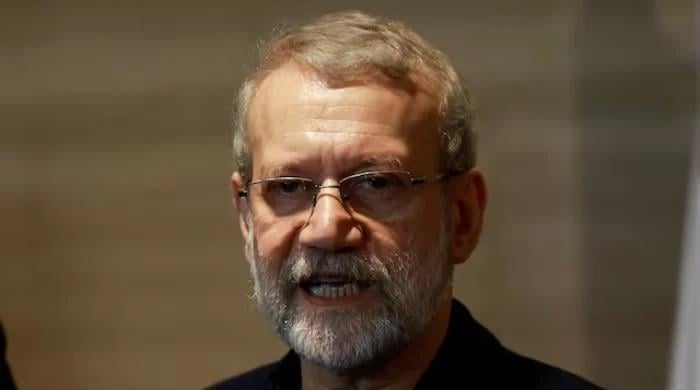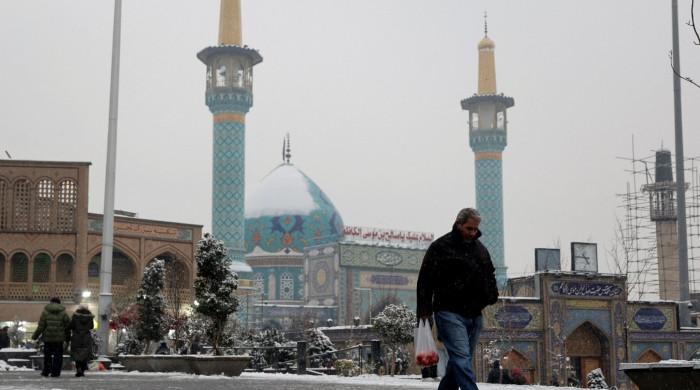Troops attacked despite coordination with Russia, alleges Turkey
Turkey blamed an air strike by Syrian government forces for the deaths of 33 soldiers
February 28, 2020

ANKARA/ISTANBUL: Turkey said on Friday that air strikes in Syria’s Idlib region which killed 33 of its troops happened despite coordination with Russian officials on the ground, and that the attacks continued after a warning being made after the first strikes, according to state media.
State-owned Anadolu news agency reported Turkish Defence Minister Hulusi Akar as making the comments. Akar also said 309 Syrian government soldiers, which are backed which are backed by Moscow, were killed in retaliation.
'Won't stop Syrian refugees reaching Europe after troops killed'
Turkey will no longer stop Syrian refugees from reaching Europe, a senior Turkish official said, as Ankara responded on Friday to the killing of 33 Turkish soldiers in an air strike by Syrian government forces in Syria’s northwestern Idlib region.
The attack more than doubled Turkey’s military death toll in February in the region south of its border, and raised the prospect that President Tayyip Erdogan would launch a full-scale operation against Russian-backed Syrian government forces.
In anticipation of the imminent arrival of refugees from Idlib, Turkish police, coastguard and border security officials have been ordered to stand down on refugees’ land and sea crossings towards Europe, the Turkish official told Reuters.
“We have decided, effectively immediately, not to stop Syrian refugees from reaching Europe by land or sea,” said the official, who requested anonymity.
“All refugees, including Syrians, are now welcome to cross into the European Union.”
Turkish media showed video on Friday of migrants including some walking through fields with backpacks. Reuters was unable to verify the footage.
The pro-government Demiroren news agency reported some 300 migrants, including women and children, were walking northwest toward Turkey’s border with Greece.
Erdogan has repeatedly threatened to open the gates for migrants to travel to Europe. If it did so, it would reverse a pledge Turkey made to the European Union in 2016 and could draw Western powers into the standoff over Idlib and stalled negotiations between Ankara and Moscow.
Some one million civilians have been displaced near the Turkish border since December as Syrian government forces, backed by Russian air power, have seized territory from Turkey-backed Syrian rebels.
It has created the worst humanitarian crisis in a nine-year war that has already displaced millions and killed hundreds of thousands.
The United Nations and others have called for an immediate ceasefire, but three rounds of talks between Ankara and Moscow have failed to reach a deal, and the fighting has raged on.
Turkey has sent thousands of troops and heavy military hardware into Idlib in recent weeks, and Erdogan has warned that Turkey would repel Syrian President Bashar al-Assad’s forces unless they pulled back from Turkish observation posts in the region.
RETALIATION
The air strike on Thursday raised Turkey’s military death toll to 54 so far in February in Idlib. The governor in Turkey’s border province said 32 other troops were wounded.
It was the highest death toll suffered by the Turkish military in a single attack since 1993, when Kurdistan Workers Party (PKK) militants killed 33 troops in Turkey’s Bingol province.
Turkey’s communications director, Fahrettin Altun, said that in retaliation, “all known” Syrian government targets were being fired on by Turkish air and land support units, though details were unclear.
Russia’s Defence Ministry said on Friday the Turkish troops hit by shelling should not have been in that area and Ankara had not informed Moscow in advance about their location, the RIA news agency reported.
A senior Russian lawmaker said that any full-scale Turkish military operation in Idlib would end badly for Ankara, the Interfax news agency reported separately.
Amid the mounting crisis over Syria, Turkey’s lira slid to a 17-month low and its main stock index plunged 10% early on Friday even as authorities banned short selling across all Turkish shares.











